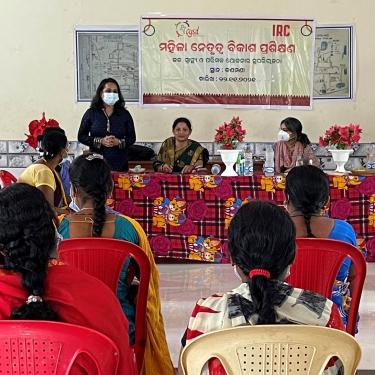
Tackling inequality with cultural sensitivity in India
My name is Nabanita Das and I am a researcher for the Governance Unit at the Centre for Youth and Social Development (CYSD) in Odisha India. Because I have studied sociology, I always feel connected with the community I work with. This is what I like the most. I contribute to the health, WASH and nutrition aspects of CYSD. My aim is to address the inequality aspects I witness in my state, move forward with reaching the Sustainable Development Goal-6, to ensure that everyone has access to safe water and a toilet, and develop nutritional benefit programs.
One target of the government of India is to make the country open-defecation free, and toilets have been constructed but the age-old practice of people of going outside is still customary. In Ganjam district, around 70 percent of households are still practicing open defecation. Many have toilets in their own houses, but the water connection is not there. Every day the women still go together to the open spaces to defecate. It’s difficult to change these habits. Awareness on negativity about open defecation should be greater so that people stop this practice. Some women who do use the toilet have expressed that they feel very safe and it provides them their personal space.
Some cultural practices are also connected with the menstrual hygiene. It’s still a common practice for household members to keep the girls away for seven days every month, kept in a separate room so she could not go out and see or speak to anyone. In school, adolescent girls should be taught personal hygiene management. If that could be included in the curriculum it will be beneficial for them and will increase the community’s awareness.
Having partnerships with organizations that have an approachable attitude and believe in strong and resilient water, sanitation and hygiene systems that deliver services to meet peoples’ needs helps me to achieve my goals.
